Conflicts, climate crises and discrimination have battered education
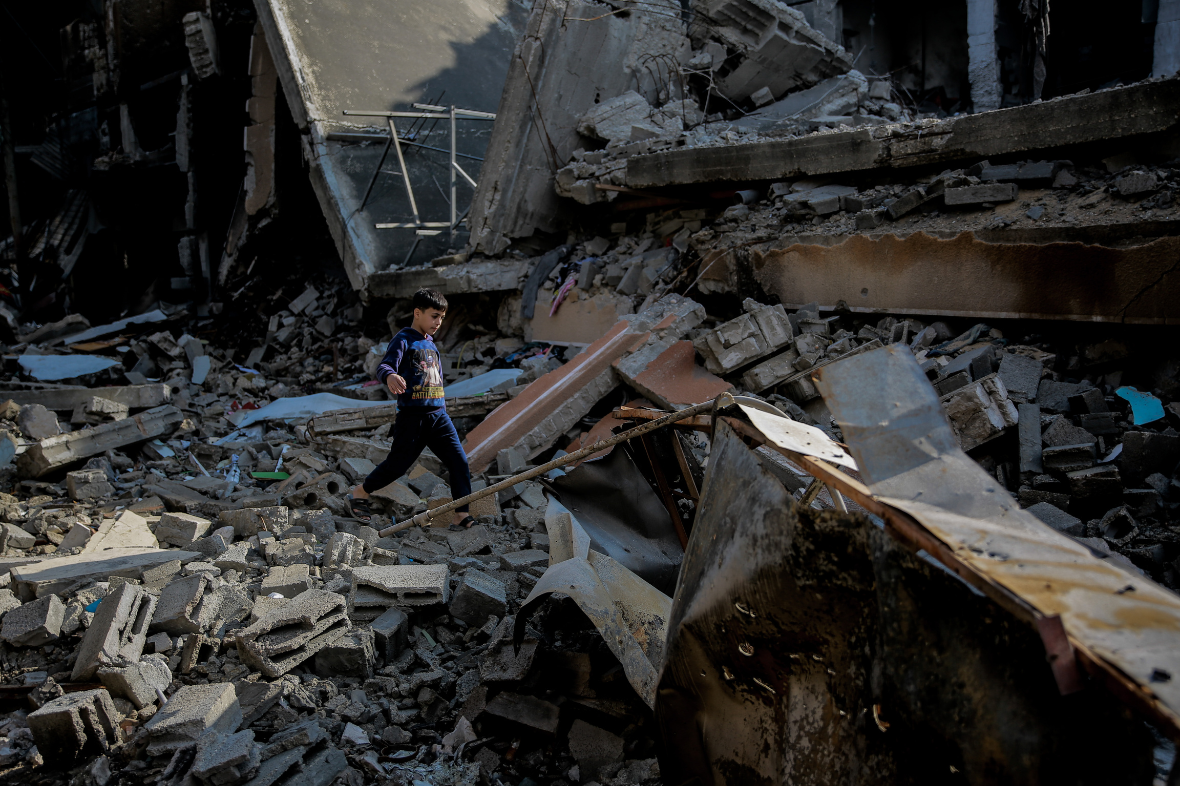
A series of devastating events over the past year continue to disrupt schooling for millions of children - but Theirworld’s projects, campaigns and youth activism are striving to make a difference.
After the pandemic disrupted schooling around the world, there were high hopes that education would bounce back and enter a brighter future.
But a series of events over the past year has resulted in further chaos and anguish for young people desperate to learn.
From conflicts and climate disasters to refugee crises and discrimination, global education has taken another battering. Here we look at some of the driving forces behind those setbacks – and what Theirworld is doing to counteract the challenges.
EDUCATION IN EMERGENCIES: current conflicts wreck children’s learning
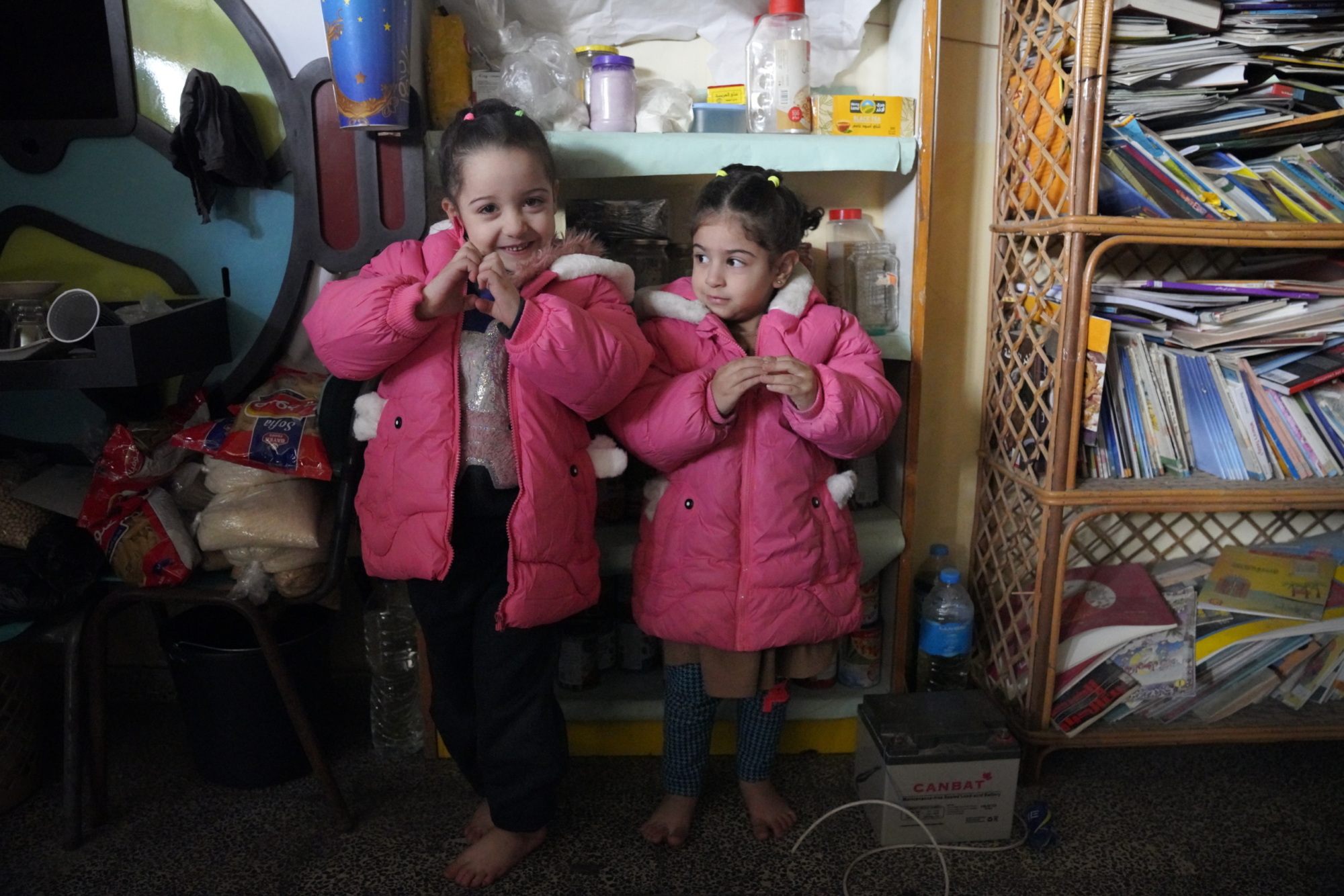
Four-year-old Jalila and three-year-old Suha in warm winter jackets at a women’s centre in Gaza that is being used as a shelter (UNICEF/Ingram)
Every child has the right to a safe place to learn and an education free from fear of discrimination, violence or attack.
But, right now, one in six of the world’s children lives in a conflict zone and about 75 million children have their education disrupted by conflict and violence.
Current conflicts are having devastating effects on children and their learning – including attacks on school buildings which are meant to be protected by the Safe Schools Declaration, signed by 119 countries.
The Israel-Hamas conflict has had a wide-ranging impact on education. In Gaza, more than 625,000 students and 22,500 teachers have been impacted. Over 4,300 school students and 230 teachers and education staff have been killed, with more than 7,800 students and 750 teachers injured.
Of the 800 schools in Gaza, about 380 have been destroyed or damaged. Nine in 10 schools have either been damaged or are being used as shelters by 1.4 million Gazans and will continue to be used even after the conflict ends.
In Israel, the education ministry says more than 50,000 school students were among 200,000 people displaced from their homes during the conflict. To tackle this, more than 350 “pop-up schools” have been created.
In November, the US Department of Education launched an investigation into the “alarming nationwide rise in reports of antisemitism, anti-Muslim, anti-Arab and other forms of discrimination and harassment” in American schools and colleges since the conflict began. A UN agency said in December that acts of harassment, intimidation, violence and incitement based on religion or belief had “spiked to alarming levels in recent weeks” across the world.
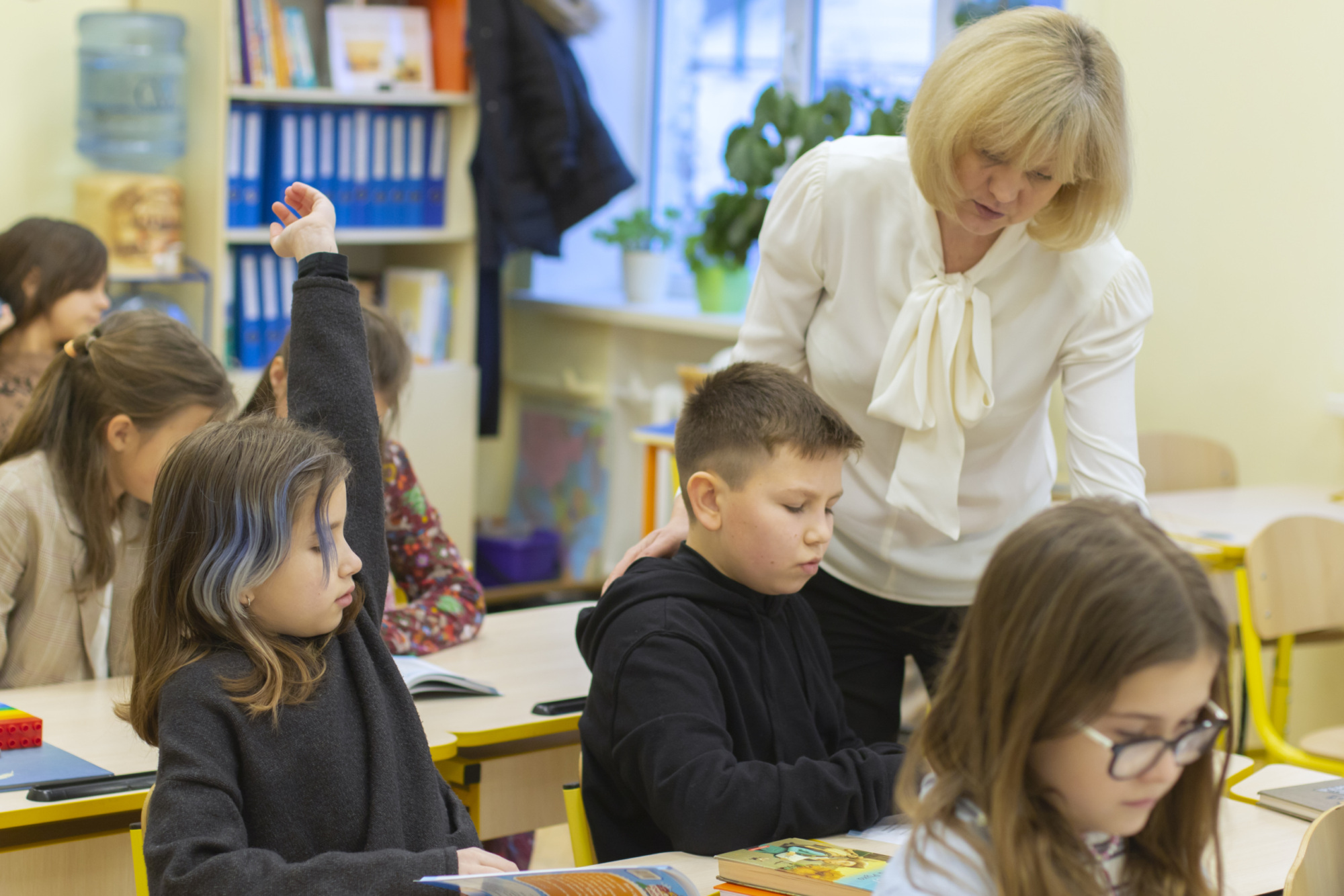
Natalya Vinnytska teaches her class in Kyiv before she runs her Theirworld-supported Stay with Ukraine online class for displaced Ukrainian children (Theirworld /Oleg Salinko)
Meanwhile, in Ukraine, the war with Russia has interrupted the education of five million children and adolescents. Hundreds of thousands of young Ukrainian children have never set foot in a school classroom. They are among a million students who have been robbed of four years of any face-to-face teaching by the Covid-19 pandemic and then the conflict.
About 7,000 schools, preschools and other educational facilities are inaccessible to children, with thousands of them damaged or destroyed. More than 500 children have been killed.
For families who fled to other countries, the picture is slightly better. About half of school-age refugees were enrolled at the start of the 2023-24 academic year. But 44% of households reported at least one child still not registered in their host country’s education system.
In Sudan, nearly seven million children were already out of school when a brutal conflict began last April. By October, UNICEF said that figure had soared to an estimated 19 million.
The violence and insecurity closed at least 10,000 schools and forced out 6.5 million children to drop out of education. Another 5.5 million in regions less affected were waiting to see if their classes were going to restart.
The largest displacement crisis in the world is the flow of people continuing to leave Venezuela because of economic and political turmoil. Save the Children said more than one million Venezuelan migrant and refugee children under 15 faced challenges last year in accessing education. Thousands of them are making dangerous treks towards Central and North America.
But conflicts aren’t the only catastrophic events that can suddenly put children’s education at risk…
CLIMATE EMERGENCIES: disasters impact learning
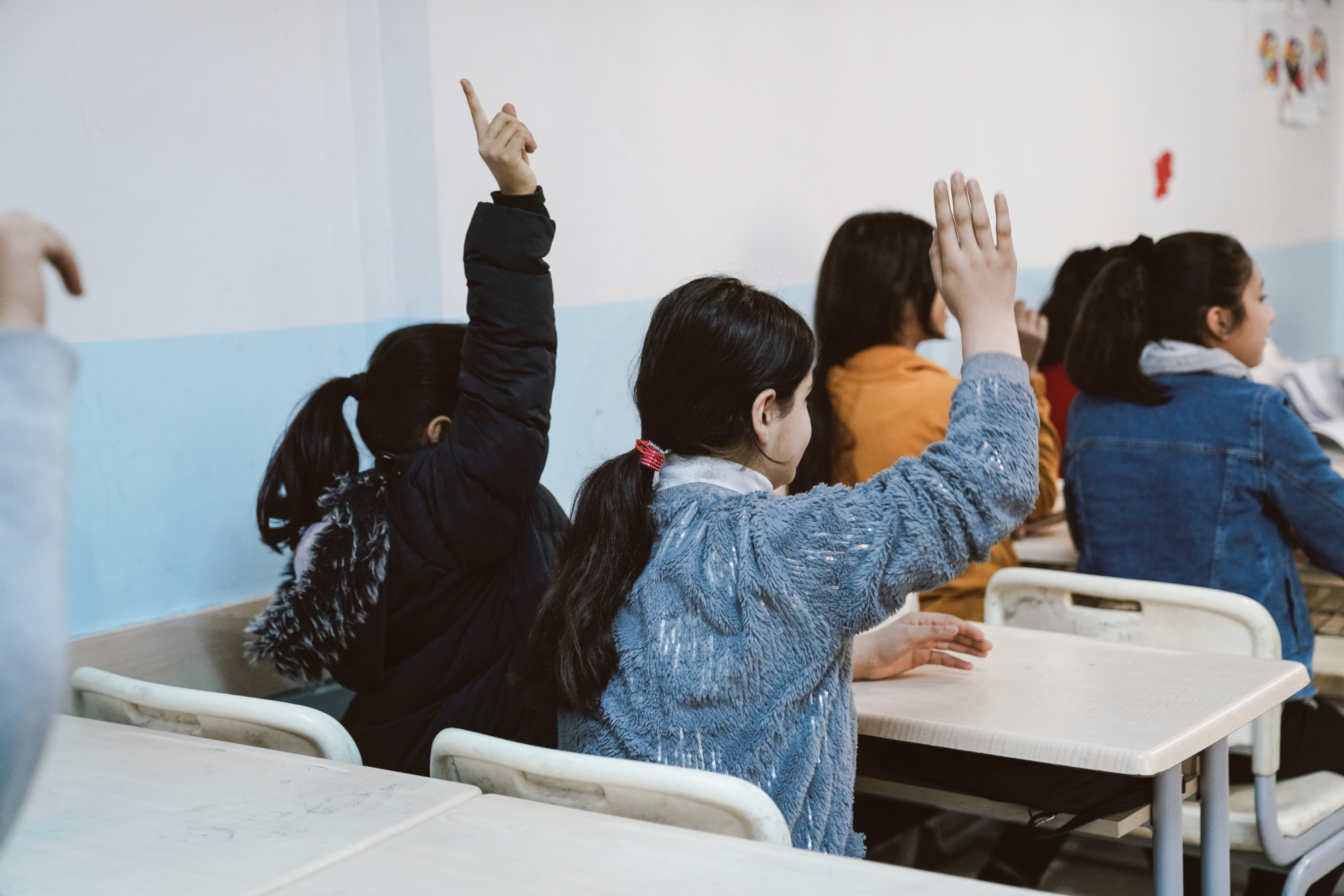
Syrian refugee children affected by trauma from the Turkish earthquake take part in a group therapy session. Supported by Theirworld, Maya Vakfi set up an emergency programme to support those suffering from trauma (Theirworld/Didem Kendik)
The planet’s changing climate has led to an increase in disasters and displacement.
In the past six years, natural disasters have forced 43 million children in 44 countries to leave their homes – 95% due to floods and storms. New analysis for UNICEF shows that river floods alone are projected to displace almost 96 million children over the next 30 years.
In Pakistan, millions of children continue to be affected in the aftermath of floods in 2022 that submerged a third of the country. One in three children were already out of school before the flooding damaged or destroyed 30,000 schools.
In Nepal, almost 900 schools were destroyed or damaged by an earthquake in November – disrupting the education of 125,000 children. This is on top of other climate events that regularly affect the country, such as flooding and landslides.
Earthquakes had major impacts on education in 2023. In Turkey, more than 50,000 people were killed and four million children were affected by an earthquake in February that also hit parts of Syria. More than 1,800 Turkish education facilities were destroyed and over 630 damaged.
In Japan, a New Year’s Day 2023 earthquake damaged at least 760 schools.
As well as unpredictable events, education can also be disrupted by ongoing attitudes and exclusion…
INCLUSION AND DISCRIMINATION: shutting children out of school
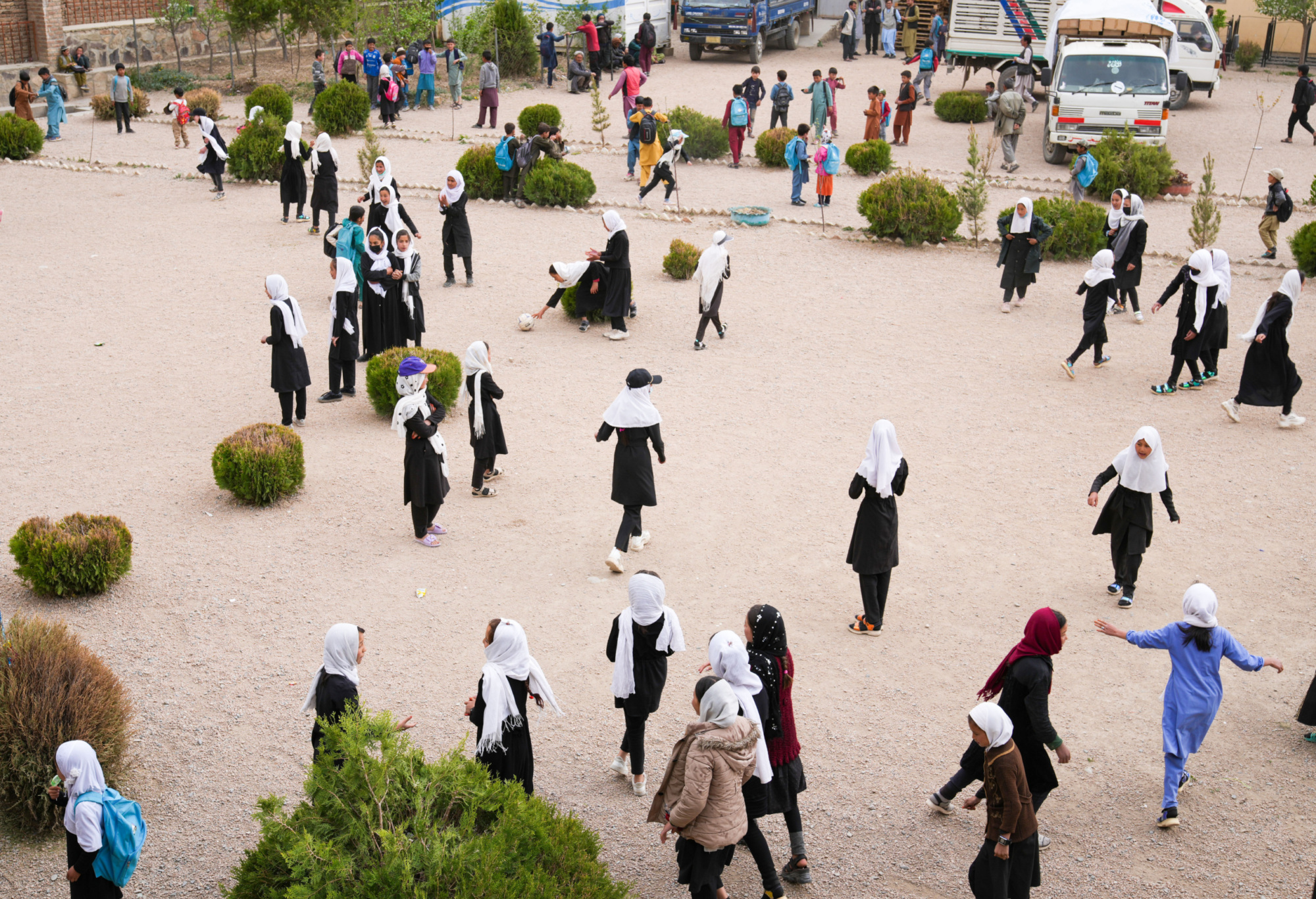
Young girls run to classes in Bamyan Province, Afghanistan – but girls aged 11 and over continue to be banned from education (UNICEF/Fazel)
Millions of children are denied education simply because they are girls or have a disability.
Despite international condemnation, Afghanistan continues to be the only country in the world to officially ban girls from education from the age of 11.
On the second anniversary of that ruling in September, Education Cannot Wait Executive Director Yasmine Sherif said 80% of school-age Afghan girls are currently out of school. She added: “That’s 2.5 million girls denied their right to the safety, protection, opportunity of education – their inherent human right.”
About 240 million children – one in 10 – live with disabilities. But they are much more likely to be out of school and lacking basic reading and numeracy skills. A report by the aid organisation Humanity & Inclusion (HI) in December revealed that of all children out of school due to emergencies and protracted crises, almost one in five have disabilities.
THEIRWORLD TAKES ACTION: how we’re making a difference
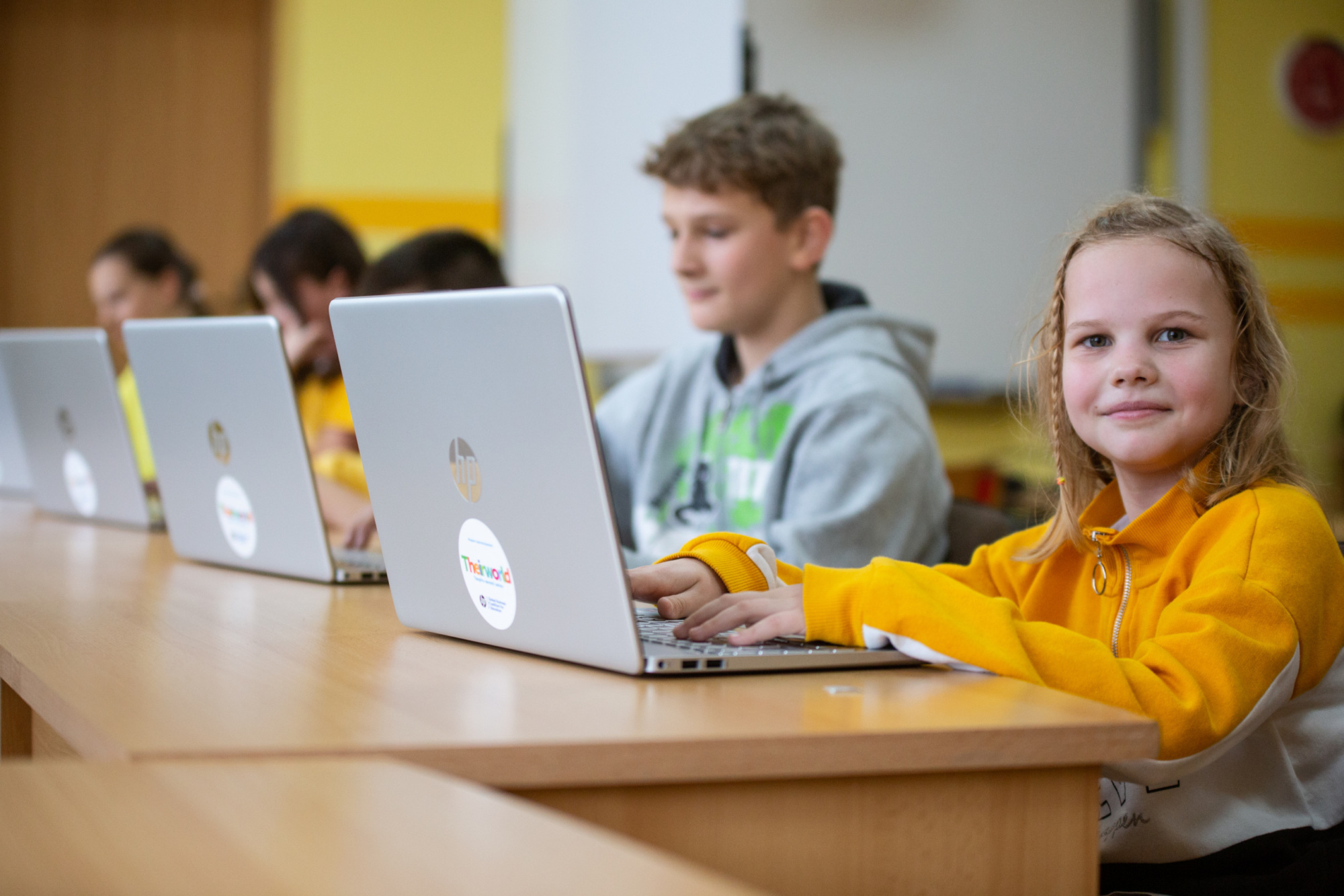
Eleven-year-old Agnieszka uses a laptop provided through the Digital Equity for Ukraine project (Theirworld/Robert Wilk)
We have a basic mission that drives everything we do – to ensure that every child has the best start in life, a safe place to learn and skills for the future.
Through our research, projects, campaigns and youth activism, we harness the potential of education to unlock big change on peace and security, climate action, gender equality, inclusion, and health and nutrition.
Theirworld was a leading proponent of the creation of Education Cannot Wait, the global fund for education in emergencies. In December, the fund announced a $10 million emergency response grant to support mental health and psychosocial services and protective learning opportunities for children in Gaza.
Theirworld and our Global Business Coalition for Education have been prominent in efforts to deliver learning for Ukrainian children. We are strategic members of the Device Coalition, launched last week by the Ukrainian government and the Olena Zelenska Foundation.
It aims to mobilise support and hand over 125,000 digital devices – 96,000 to students and 29,000 to teachers in Ukraine – by the middle of this year. That follows our involvement in the Digital Equity for Ukraine initiative, which delivered more than 70,000 digital devices worth $40 million to Ukraine and to refugee children in neighbouring countries..
We also supported the Stay With Ukraine project to provide online lessons in Ukrainian language, culture and history to 700 students aged 10 to 17 who have moved to other countries. And Theirworld is working with Ukraine’s government to support a national early childhood education and development initiative to give children the best start in life, as well as on accelerated learning programmes for science and mathematics.
We have several other projects in various countries which tackle the effects of emergencies and displacement and are in regular contact with partners in the Middle East and other regions to see where Theirworld’s expertise can make a difference.
Education is also key to addressing the threat of climate change. It helps young people learn about its causes and impacts – encouraging a shift towards more sustainable lifestyles and giving them the knowledge and skills needed to adapt and innovate.
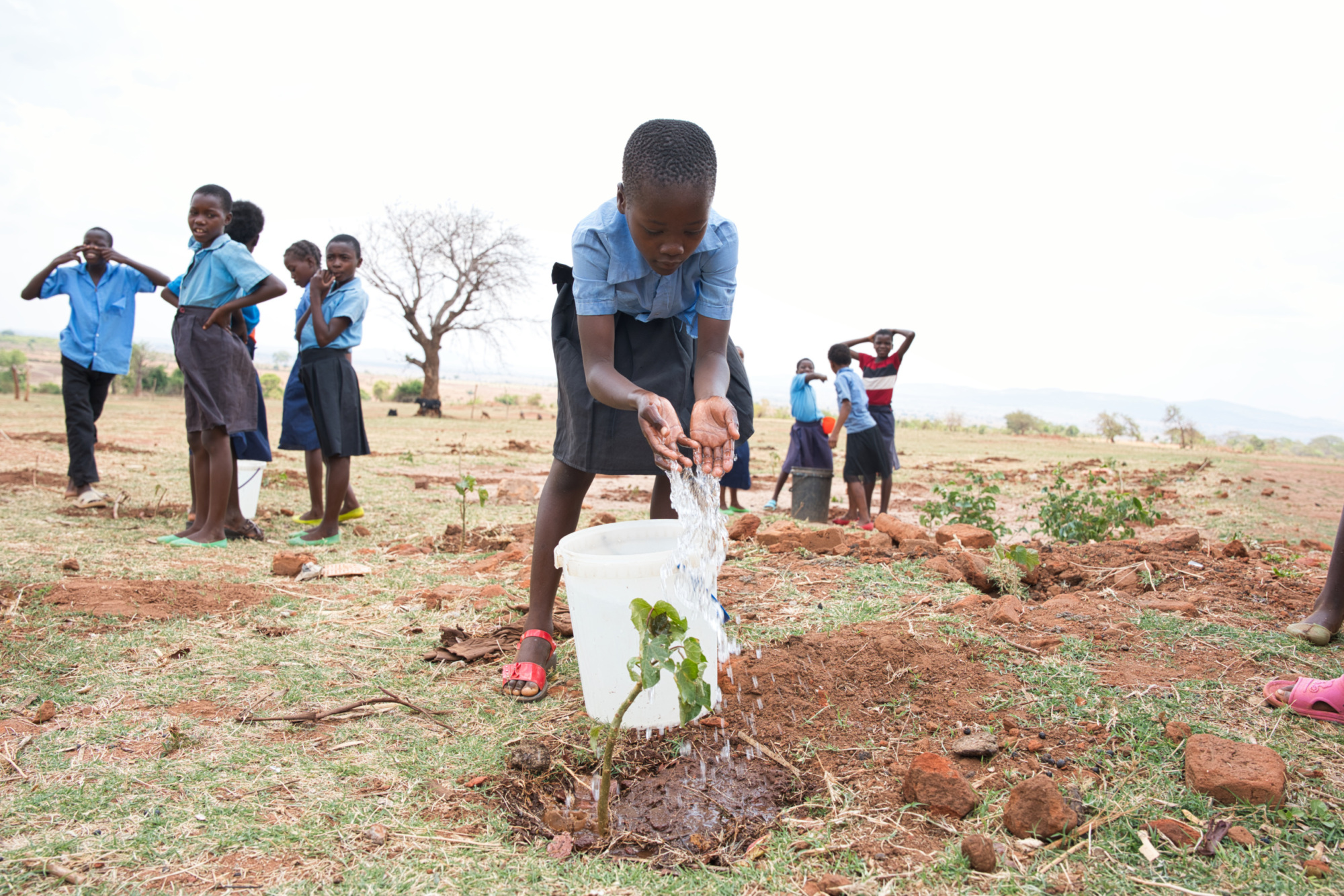
A student plants a tree as part of the Earth Warriors project implemented at Nkunga Community School in Zambia, run by local partner Impact Network (Theirworld/Jason J Mulikita)
More than 50% of all Theirworld projects now include a component of climate education. Among them are Young Climate Heroes in the Making, in which Theirworld is supporting Earth Warriors to expand to Zambia and deliver quality education to young people on the frontline of the climate crisis.
Theirworld’s Global Youth Ambassadors – our network of more than 2,000 young activists in over 120 countries – are promoting the value of education in the climate crisis throughout their communities and worldwide. They have set up a Climate Task Team to spread the word, engage other young activists and influence decision-makers.
Theirworld’s recent climate responses included a flood relief effort in India. We were already supporting the Blooming Buds project in Chennai, where the organisation Jeeva Jyothi is setting up early childhood development centres for children in slums and rural villages. In December, following the impact of Cyclone Michaung on the schools and families we support, flood relief kits were distributed to families.
Throughout 2023, Theirworld continued to mobilise youth, campaigners, businesses and partners to pursue our mission. We launched the Act For Early Years campaign that has grown to become a global call for investment in the education and care of the youngest children – many of them affected by conflict, climate and displacement.
We reached more than 1.6 million children through our projects in countries from Nigeria to Ukraine. We awarded grants and mentoring help to innovative organisations. We ensured the voices of young people were heard loud and clear.
And we released a new set of school resources that focus on disability and girls’ education. The packs for UK school students and teachers have engaging and thought-provoking activities and feature the experiences of some of our Global Youth Ambassadors.